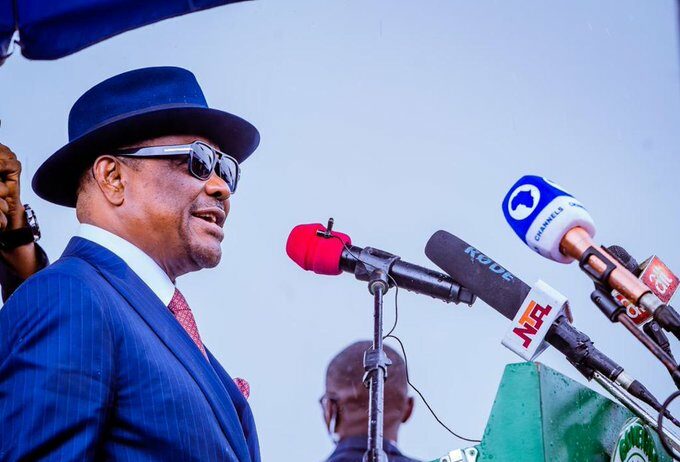By: Daure David
In a dramatic turn of events, the recent reinstatement of Ude Okoye as the National Secretary of the People’s Democratic Party (PDP) has sent ripples across Nigerian political landscapes. This development has particularly shaken Bola Ahmed Tinubu and his allies, as it highlights the deeper rifts and shifts in power dynamics that could impact the upcoming 2027 presidential election.
For those who have followed the volatile nature of Nigerian politics, Wike’s return to the political fray is hardly a surprise. Governor Nyesom Wike, the former governor of Rivers State, has long been a key player in the PDP, known for his political maneuvering and strong ties with various factions within the party. His decision to reinstate Ude Okoye — who had been suspended due to various political issues — signals a bold statement of defiance.
This move comes as a direct challenge to the authority of Bola Tinubu, the sitting president, and his camp. Tinubu, who has ambitious plans for 2027, clearly saw Wike’s actions as a betrayal, a major blow to his hopes of consolidating political control over the nation’s political landscape. Wike’s actions and the return of the “G-String gang” — a group of powerful figures in Nigerian politics who have long been known for their influence — signify a fracturing of allegiances and a shift in loyalties.
Wike’s recent political maneuver, which is being described as a “pack of cards falling apart,” is not just a minor dispute within the PDP but a significant indication of a larger, inevitable shift in political forces. Wike’s G-String gang, with their well-established power within the PDP, appear to be at odds with Tinubu’s vision. This could weaken the president’s position ahead of the 2027 presidential election and create further instability within his party. As political alliances begin to realign, Wike’s faction appears ready to play a more prominent role, threatening to derail Tinubu’s political trajectory.
While the drama continues to unfold, one thing is clear: the Nigerian political scene is in flux. The once-solid structures are crumbling, and new alliances are emerging. For Tinubu and his team, the challenge ahead may not just be from the opposition but also from within their own ranks. How Tinubu navigates this fracturing of support will have a profound impact on his re-election bid.
As political leaders scramble to position themselves for the 2027 election, the ultimate question remains: Will Bola Tinubu regain control of the party’s machinery, or will figures like Wike, with their deep political roots and loyal factions, topple the balance of power in favor of a new order?
The coming months will undoubtedly offer more twists and turns in this ever-changing political drama, but for now, it’s clear that Wike’s G-String gang and the return of Ude Okoye have shaken the foundations of Bola Tinubu’s political future.







